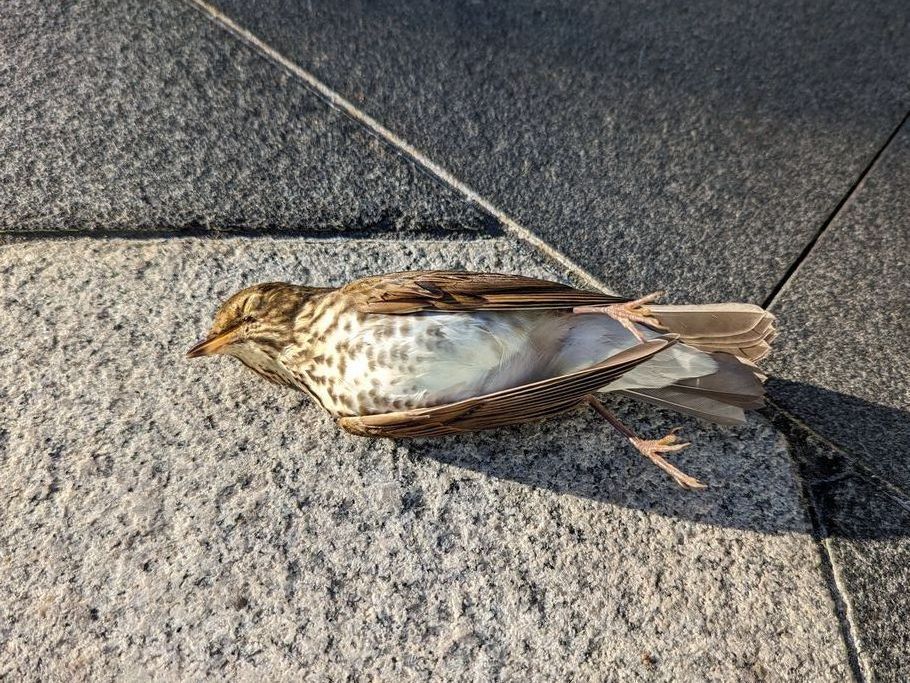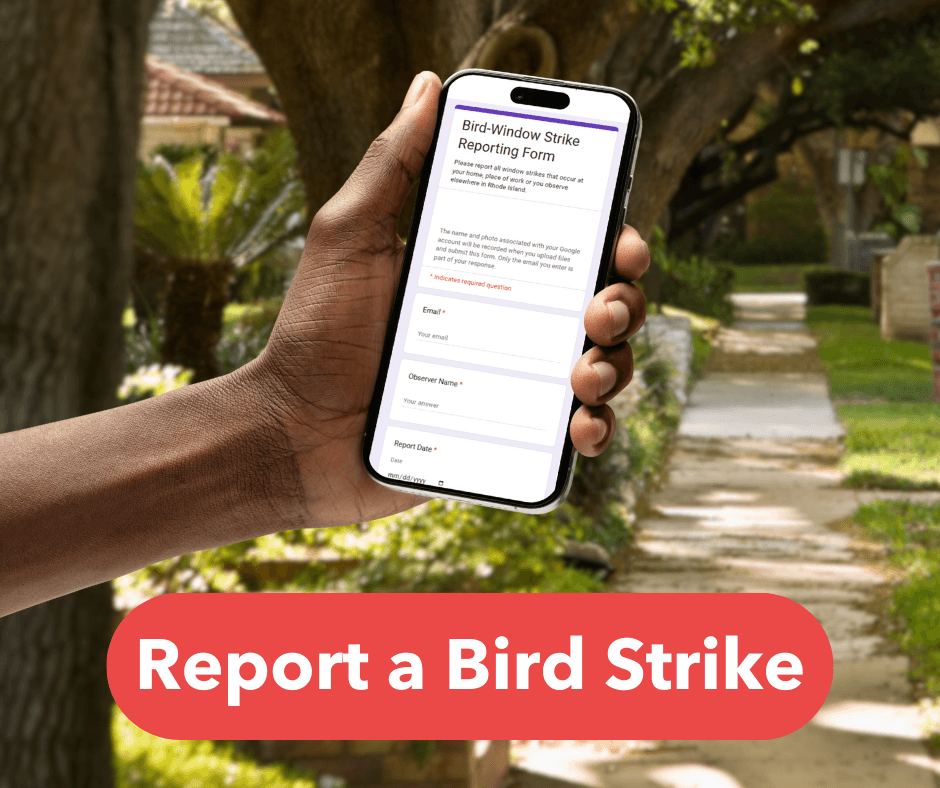Reducing Bird Collisions with Windows
Rhode Islanders can take action by using our Report Bird Strike form ⬇️
-
Each year in the United States, as many as 1 billion birds die from flying into windows. Over 250 million of these fatalities (44%) occur in residential areas. While bird-window collisions happen throughout the year, an increased number of fatalities occur during periods of migration, as large numbers of exhausted birds stop and refuel in gardens, backyards and at feeders. This source of mortality is unnecessary, as there are a number of relatively simple steps* homeowners can take to drastically reduce the likelihood of bird-window collisions. Nevertheless, in order to fix the problem, it is essential that we understand it better.
Since 2023, the Audubon Society of Rhode Island collects data on bird-window collisions in the state. To better understand the number of birds that fall victim to window collisions each year, your help is essential. By collecting simple data on window strikes and reporting it to Audubon, you will provide important information that can be used to determine the number of birds that perish from window-strikes in Rhode Island. The data can also be used to determine when collisions are more likely, thereby strengthening our ability to take more effective steps toward reducing this source of mortality.
-
Two Ways to Participate:
YOU can help Audubon with this effort! We need you to report any and all bird strikes in the state of RI, and/or participate in Providence Migration Surveys!
NOTE! If you encounter a bird that has collided with a window and is still alive but clearly injured, please contact a wildlife rehabilitator BEFORE taking action - find a rehabber near you using https://ahnow.org.
-
REPORT ALL STRIKES
Everyone can and should participate in this effort! It's simple: if you encounter a dead bird that is located near a window (suggesting it may have died from a collision), please log the sighting with Audubon:
1) First, take photos of the bird in the location where it was found (multiple photos from different angles are best.)
2) Submit your photos and information using this form. OR send the photos to sdeckel@asri.org and include date and address (can be approximate) in email.
-
PROVIDENCE MIGRATION SURVEYS
In addition to collecting data from around the state, we are interested in understanding how many birds fall victim to building collisions in the city of Providence.
To complete these survey(s), you will walk around sections of Providence during the early hours of the day and use our reporting form for each bird window/strike you come across.
If you are interested in participating during the upcoming migratory period, please contact the Audubon Director of Bird Conservation at sdeckel@asri.org to get started.
Watch our 22-minute training video, which covers both ways to participate:
___
Want to stop window collisions before they happen?
Reflected landscapes can confuse birds and cause deadly window strikes. For existing windows, use direct window treatments such as decals, tape, tempura paint, or one-way transparent film. Netting, screens or Acopian Bird Savers can also be added. For new windows, consider choosing ones with external shutters, sun shades or screens. Be sure to turn of non-essential lights and install downward-facing lighting to reduce light pollution at night, which can confuse migrating birds and lead to window collisions.
Visit the Audubon Nature Shop at asri.org/NatureShop to view our selection of window decals.
Learn More About the Audubon Avian Research Initiative



















